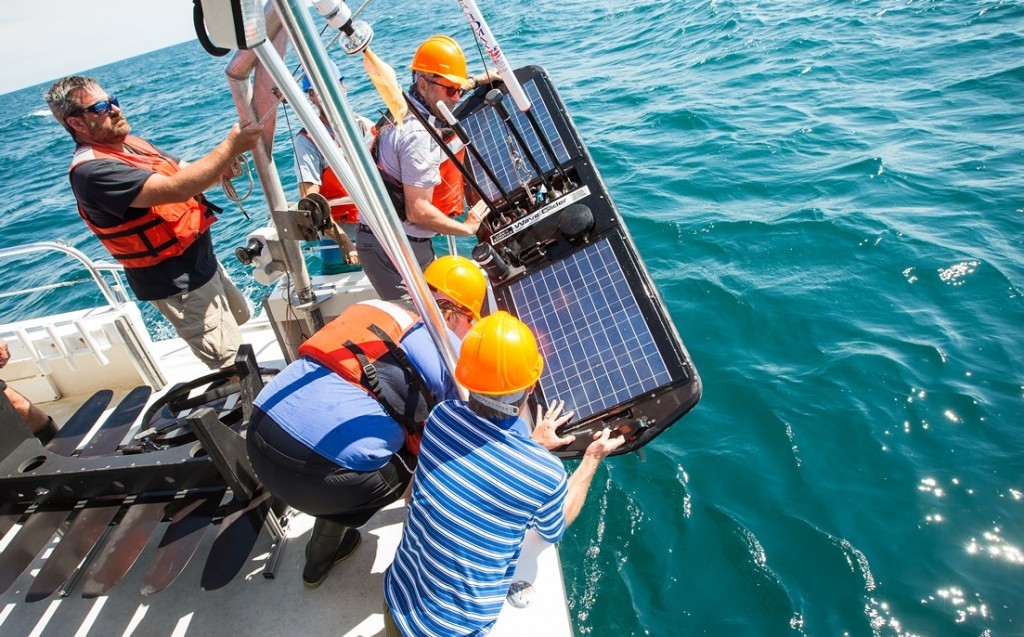
A cutting edge ‘listening’ device designed and manufactured by a Scottish company for use in the oil and gas and renewables industries is helping monitor dolphins and other marine life.
The acoustic technology from Fife-based company, SA Instrumentation, has been used in successful sea trials to monitor sea creatures off the coast of North Carolina.
A team of scientists from East Carolina University (ECU) has been able to acoustically record bottlenose dolphins as well as a range of other sea mammals using its Decimus product, which was integrated into the university’s wave glider.
They were also able to acoustically record tagged fish such as Atlantic sturgeon and sand tiger sharks, and will be soon searching for acoustically tagged tuna and flounder with another system integration called Vemco.
Located in Tayport, SA Instrumentation is a spin out from University of St Andrews. Pioneers in real-time autonomous acoustic detection, they have designed and manufactured a portfolio of products with a growing range of applications.
The Decimus is used in support of environmental assessments, mitigation measures and scientific research.
Applications include marine renewables, oil and gas, decommissioning, marine civil engineering and infrastructure projects by the Government, security and defence contractors, as well as the scientific community.
The wave glider, which was made by US-based company Liquid Robotics and nicknamed Blackbeard by the researchers, was funded by a $281,393 grant from the National Science Foundation.
Operations Manager, Richard Baggaley, said robotic and autonomous surface vessels are transforming ocean observation, making data collection and monitoring easier, safer and more cost effective.
“We have been working with Liquid Robotics for the past couple of years, integrating the Decimus onto the Wave Glider allowing autonomous passive acoustic monitoring solutions on the Liquid Robotics platform.
“We are currently working with a number of universities around the world in the supply of our technology on similar projects.
“The results of this particular project are very encouraging indeed and we are very pleased and excited to have been able to provide some of the technology to make it possible.”
ECU’s Professor Joseph Luczkovich, a specialist in the sounds fish make, said the technology used in the project helped provide a significant step forward in ECU’s coastal research capabilities.
“We were able to retrieve quite a bit of data from the Decimus, and we discovered a lot of fish and ondontocete dolphin sounds (whistles and clicks) had been recorded and classified.
“The information we gathered also provides valuable data on the potential effects of oil and gas exploration and wind turbine development in coastal waters.”